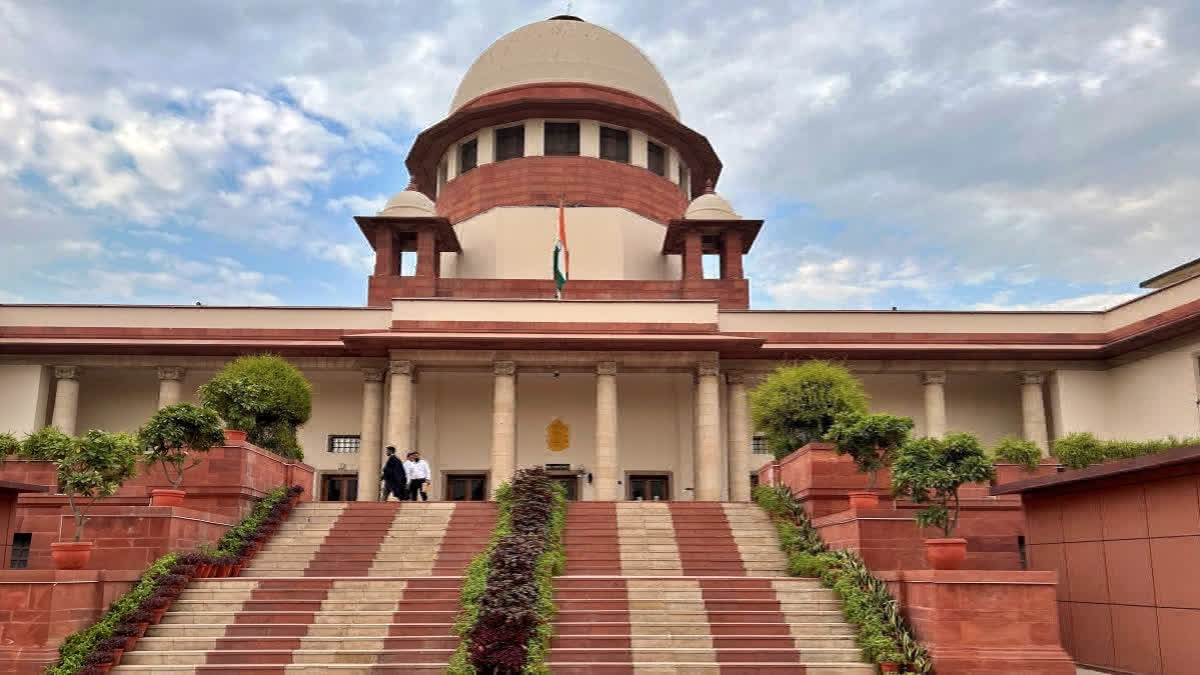New Delhi:The Supreme Court has said truth constituted an integral part of the justice delivery system in the pre-Independence era, however, materialism has overshadowed the old ethos while making suggestions to streamline the proceedings and avoid anomalies concerning the bail applications being filed in the cases pending trial.
A bench comprising justices Vikram Nath and Rajesh Bindal said: “In the last 40 years, the values have gone down and now litigants can go to any extent to mislead the court. They have no respect for the truth. The principle has been evolved to meet the challenges posed by this new breed of litigants”.
Justice Bindal, who authored the judgment on behalf of the bench, said truth constituted an integral part of the justice-delivery system in the pre-Independence era, however, the post-Independence period has seen drastic changes in our value system. “The materialism has overshadowed the old ethos and the quest for personal gain has become so intense that those involved in litigation do not hesitate to take shelter of falsehood, misrepresentation and suppression of facts in the court proceedings”, he said.
The bench said that it is well settled that a litigant, who attempts to pollute the stream of justice or who touches the pure fountain of justice with tainted hands, is not entitled to any relief, interim or final. “Suppression of material facts from the court of law is actually playing fraud with the court. The maxim supressio veri, expression faisi, i.e. suppression of the truth is equivalent to the expression of falsehood, gets attracted. It’s nothing but the degradation of moral values in the society, maybe because of our education system”, said Justice Bindal.
The apex court made these observations in a judgment on a bail plea filed by one Kusha Duruka facing trial in a Narcotic Drugs and Psychotropic Substances Act case. “This is another case in which an effort has been made to pollute the stream of administration of justice”, said the bench.
Justice Bindal said one of the two cherished basic values by Indian society for centuries is "satya" (truth) and the same has been put under the carpet by the petitioner. “Now we are happier to hear anything except truth; read anything except truth; speak anything except truth and believe anything except the truth. Someone rightly said that `Lies are very sweet, while truth is bitter, that's why most people prefer telling lies”, said Justice Bindal, in a judgment delivered on January 19.
In March 2023, the Odisha High Court rejected the appellant’s bail plea and noted that a co-accused in the case had been released in January 2023. In July 2023, the appellant moved the apex court challenging the high court order. In September 2023, the apex court issued notice on the appellant’s plea. While the matter was pending before the apex court, the appellant filed a second bail application before the high court and the same was not disclosed before the apex court. In October 2023, the high court granted bail to the appellant. On December 6, 2023, state government counsel informed the apex court that the appellant had already been released by the high court. The apex court called for an explanation and the record of the case from the high court.
